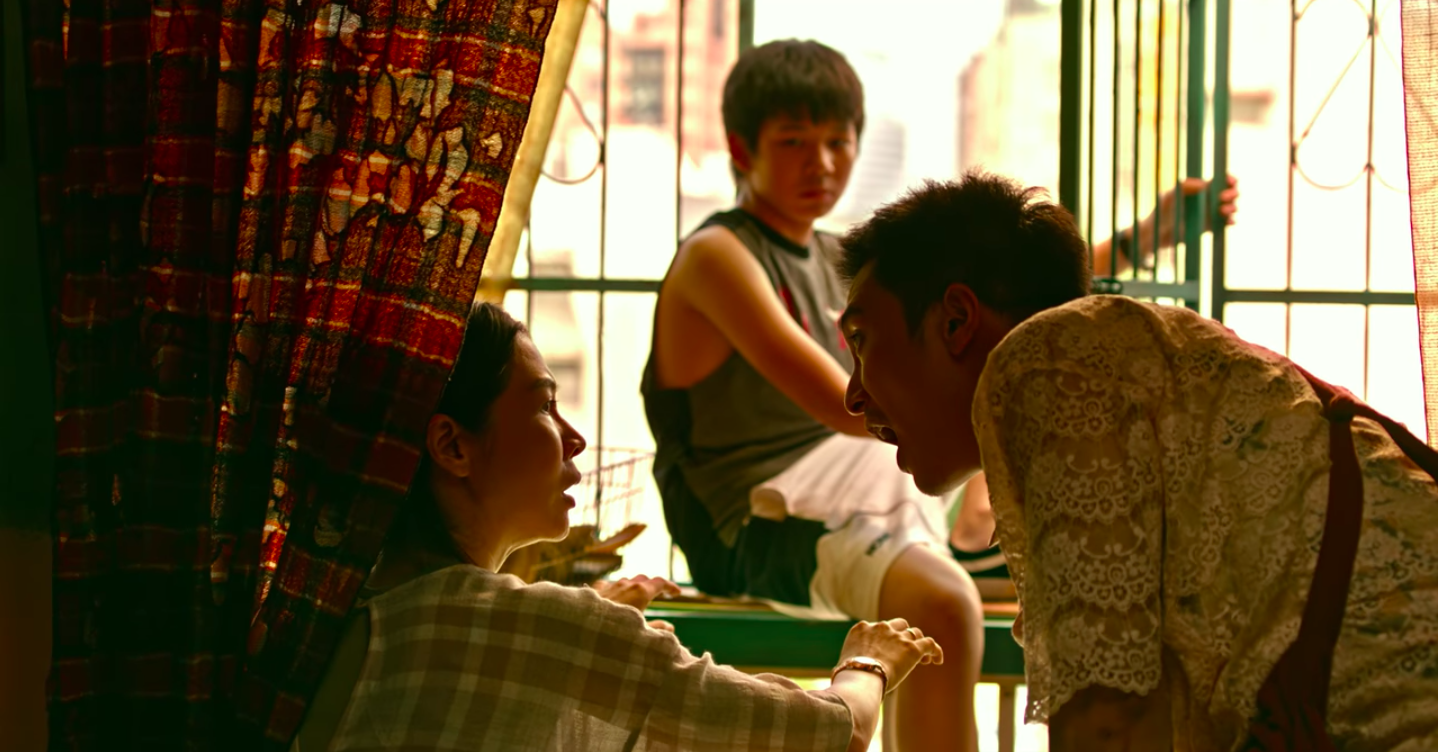Dear Ex (2018) is a Taiwanese dramedy that explores themes of love, grief, and acceptance through the lives of three individuals connected by a single man’s death. When Liu Sanlian, a widow, discovers that her late husband has left his life insurance money to a man named Jay, she is furious and seeks answers. Her teenage son, Song Chengxi, caught between his mother and Jay, embarks on a journey of self-discovery as he learns more about his father’s hidden past and his unconventional love story. The film presents an emotionally rich and visually engaging narrative, blending humor and melancholy to tell a deeply personal story.
The story unfolds as Liu Sanlian, an outspoken and stubborn woman, struggles to come to terms with the fact that her husband, Zheng Yuan, had a secret relationship with Jay. She is shocked and enraged that after years of marriage, her husband chose to leave all his insurance money to another man rather than providing for their son. Meanwhile, Chengxi, their teenage son, feels suffocated by his mother’s constant complaints and attempts to control his life. In frustration, he leaves home and unexpectedly moves in with Jay, hoping to understand his father’s choices and find his own answers. Jay, a free-spirited and seemingly irresponsible man, initially resents the intrusion but gradually forms an unusual bond with Chengxi.

As Chengxi spends time with Jay, he begins to see a different side of his father’s life—one that was full of love, yet hidden due to societal expectations. Jay reveals that he truly loved Zheng Yuan, but their relationship was marked by secrecy and heartbreak. The film delicately explores the complexities of love and how it can transcend traditional labels, showcasing Jay’s pain as well as Zheng Yuan’s inner struggles. Meanwhile, Sanlian continues her fight to reclaim the insurance money, convinced that Jay is an opportunist who manipulated her husband. However, through small moments and realizations, she starts to question whether her anger is truly justified or if it stems from her own inability to accept that her husband had another side to him that she never knew.
As the tension between Sanlian, Jay, and Chengxi reaches its peak, the film delivers a series of emotionally charged moments that challenge each character’s perceptions. Chengxi begins to understand that love is not always straightforward and that his father’s choices, though painful, were genuine. Sanlian, in turn, starts to see Jay not as an enemy but as someone who also suffered a great loss. The story doesn’t offer easy resolutions, but it provides moments of healing—Sanlian and Jay find a fragile understanding, while Chengxi matures through his experiences, ultimately choosing to move forward rather than dwell in the past.

In its final moments, Dear Ex leaves the audience with a poignant and bittersweet message: love, in all its forms, is complex, unpredictable, and often misunderstood. The film does not focus on judgment but rather on the emotions that connect us, regardless of our roles in each other’s lives. Through its raw yet tender storytelling, it challenges societal norms and expectations, making Dear Ex a beautifully crafted film that resonates deeply with those who have experienced love, loss, and the complicated emotions in between.





